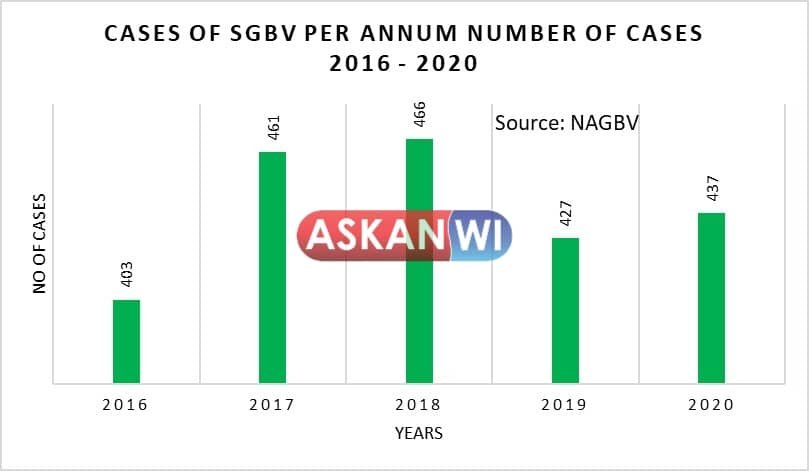Gambia’s Minister Announces Dedicated Court for Gender-Based Violence Trials
Minister Kinteh © Askanwi
By Edward Francis Dalliah
During a recent workshop on Gender-Based Violence (GBV) organised by the All-Africa Church Conference between 8th – 10th April 2025, the Minister for Gender, Women, and Children’s Welfare, Hon. Fatou Kinteh, announced that The Gambia will soon establish “a special court” dedicated to trying GBV cases.
In her remarks, Hon. Kinteh emphasised that the initiative “is at an advanced stage,” explaining the necessity of the court, by citing that “when cases go to the normal courts, they take a very long time. And in the process, the victims get frustrated, and they withdraw their cases. So, to prevent that from happening, now we are building a court in the Greater Banjul Area.” She further noted that the construction of this court is funded by the United Nations.
This landmark achievement from the government will ensure that more GBV cases can be heard in court, significantly improving the current situation for victims navigating local judicial systems.
Delegates at workshop © Askanwi
The United Nations High Commissioner for Refugees (UNHCR) characterises GBV as a severe violation of human rights that poses significant health risks. This violence encompasses a range of harmful acts, including sexual, physical, mental, and economic abuse, alongside threats, coercion, and manipulation occurring in both public and private spheres. These abuses can take numerous forms, such as intimate partner violence, sexual violence, child marriage, and female genital mutilation (FGM), among others.
In The Gambia, the spectrum of GBV includes domestic violence, sexual assault, and harmful traditional practices like FGM, which persist despite existing legal prohibitions. A report by the Standard Newspaper in September 2024 revealed that the country registered 236 cases of GBV, reflecting a decrease of 74 cases from those reported in August 2023 by Kerr Fatou.
According to the Network Against Gender-Based Violence Strategic Plan 2022–2026, a total of 2,194 cases were reported between 2016 and 2020. Notably, 2018 recorded the highest number of cases, with 466 reported, whereas 403 cases were recorded in 2016, marking the lowest annual count.
Statistics on GBV Cases 2016 to 2020 by NAGBV
Although certain forms of GBV, including rape, child marriage, and female genital mutilation (FGM), are criminal offenses, significant challenges persist in enforcing the laws meant to protect victims and hold perpetrators accountable. These challenges are deeply rooted in entrenched cultural norms that perpetuate a culture of silence around such abuses. Additionally, many victims harbour a profound distrust of authorities, which further hinders reporting and access to justice.
Hon. Kinteh pointed out that many individuals “have lost confidence in the police”, leading to underreporting of cases. However, she noted that, thanks to recent governmental interventions, including specialised training for police on GBV, “now people have [regained] confidence in the police, [and] they are reporting [cases].”
A 2023 study conducted by Women in Liberation & Leadership (WILL) assessed perceptions of GBV and harmful traditional practices in the Lower River Region (LRR) and North Bank Region (NBR). The findings indicated that a significant portion of respondents in both regions recognised women as being at risk of intimate partner violence (IPV) and GBV, with over 70% agreeing that child marriage should be eradicated.
While the criminalisation of GBV-related practices and educational initiatives has contributed to a decline in child marriage and FGM, support for these practices remains alarmingly high within the society. Recently, there have been efforts to challenge the repeal of Section 32 of the Women's Amendment Act 2015, which criminalises these practices, with proponents citing religious and traditional justifications for their opposition.
However, the creation of the special court will mark a significant step toward faster justice and better support for survivors amidst challenges that remain. This initiative shows a growing commitment from the government in the fight against GBV.
Advocates at workshop © Askanwi




